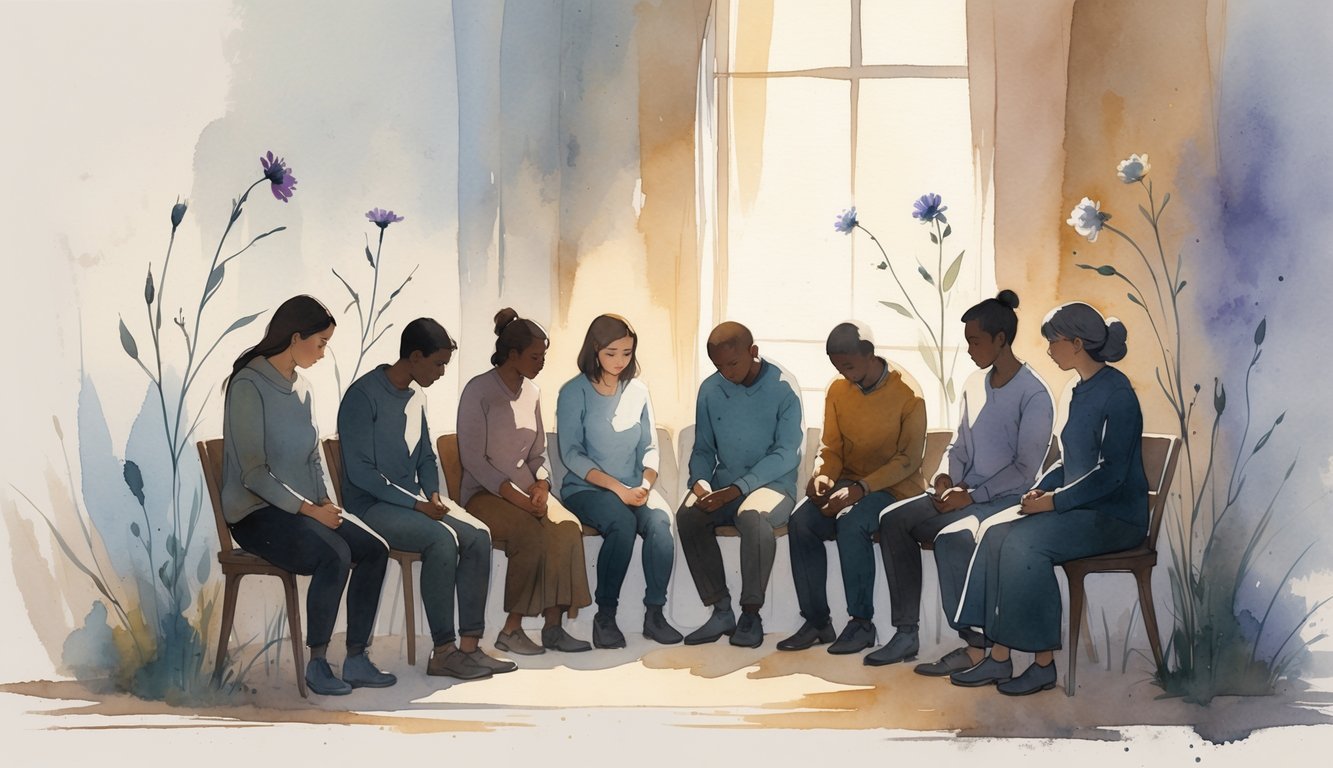PsychNewsDaily Publishers
100 Summit Drive
Burlington, MA, 01803
Telephone: (320) 349-2484
PsychNewsDaily Publishers
100 Summit Drive
Burlington, MA, 01803
Telephone: (320) 349-2484
Subtle sins, such as gossip, envy, and impatience, can erode spiritual health and relationships, hindering personal growth and connection with God. Recognizing these behaviors is crucial.

Most people think sin is just about the big, obvious mistakes. But honestly, it’s those tiny actions or quiet attitudes that can sneak up on you. They slip in so easily, and before you know it, they start to pull you away from God.
Noticing these everyday sins can reveal where your faith gets quietly chipped away. If you pay attention to what you’re missing, you’ll probably find yourself growing stronger and living out your beliefs more fully. Let’s dig into some of these subtle sins and see how they might show up in your daily life.

Gossip might look harmless at first, but it actually causes real damage. When you pass along rumors or judge others, you end up hurting trust and relationships.
Gossip breaks unity in your community and wounds people’s feelings. It spreads half-truths and makes problems even messier.
If you avoid gossip, you’ll help build peace and trust around you. Words really do have power—why not use them to lift others up?

Envy sneaks in so quietly most of the time. You might admire what someone else has, but then suddenly you wish you could swap places.
That kind of envy can make you feel bitter or blind to your own blessings. Try to focus on your own gifts and just be glad for others’ good fortune.

Impatience doesn’t always seem sinful, but if it becomes your default, it can really strain your relationships. You might rush people or snap too quickly.
That creates distance—not just with others, but with God too.
If you notice impatience bubbling up, pause and ask for a little more patience. Even small changes can make a big difference in how you show love.

Holding onto unforgiveness blocks your ability to accept God’s forgiveness. It puts up a wall between you and Him.
Unforgiveness weighs you down and hurts your spirit over time. It’s just heavy.
When you choose to forgive, you let yourself heal. Letting go isn’t easy, but it opens the door to peace and shows God’s grace in your life.

It’s tempting to think little lies don’t matter. But even “white lies” chip away at your honesty with God and others.
When you stretch the truth, you make it harder to trust yourself and be real with people. Telling the truth, even when it’s awkward, keeps your heart clear and your friendships strong.

Too much worry can sneak up on anyone, but it quietly drains your trust in God. When fear takes over your thoughts, peace slips away.
Worry feels normal sometimes, but it keeps you stuck. The Bible says to bring your worries to God instead of carrying them alone.
If you catch yourself spiraling, focus on what’s actually in your control. Pray for help—God cares about your everyday struggles.

You might not realize how much a kind word can lift someone up. If you forget to encourage others, you miss a real chance to show kindness.
Encouragement helps people feel valued and strengthens your relationships. It even shapes the kind of community you’re building.
Look for the moments when someone could use a boost. Your words might mean more than you think.

Pride can slip in through your successes before you notice. Maybe you always want to be right or you hate asking for help.
Even just wanting credit for your work can get in the way of growth.
Try to remember that most achievements come from teamwork. Staying humble keeps you open to learning from others.

If you let anger sit inside you, it grows. That kind of anger seeps into your heart and spills over into your relationships.
Even when your anger feels small or private, it can turn into bigger issues if you ignore it. Feeling angry is normal, but don’t let it take charge of your actions.
Find ways to cool off and talk things out before anger gets the upper hand. That helps keep your heart peaceful.

It’s easy to overlook people in need, but doing so creates a gap between your faith and your actions. When you turn away from those struggling, you miss a chance to live out what Jesus taught.
The Bible warns about ignoring the poor. Showing care doesn’t have to be complicated—a little kindness goes a long way.
Even a small gesture today could change someone’s world. That’s worth remembering.

You don’t always spot the small actions or attitudes that chip away at your spiritual health. These subtle sins look harmless but pile up and start to affect your connection with God and others.
Subtle sins usually hide as habits or thoughts you don’t see as a big deal. Think gossip, impatience, worry, or envy. They might not break obvious rules, but over time, they harm your heart and mind.
Since these sins feel minor, you might brush them off. But they shape how you treat people and how you see yourself. Being honest with yourself about these small faults is how you grow.
When you ignore subtle sins, your spiritual growth slows down. You might notice you feel distant from God or have a harder time with bigger challenges.
These small sins can make you feel guilty, frustrated, or bitter. They also impact your relationships—maybe gentle criticism turns harsh, or worry keeps you from trusting God.
If you start recognizing and changing these everyday habits, you’ll move closer to God and find more peace.

Every day, small temptations pop up in ways you might not expect. If you pay attention to what triggers them and stay mindful, you’ll have an easier time catching these subtle wrongs before they take root.
Certain situations make you more likely to slip up. Stress at home or work can push you toward impatience or sharp words.
Scrolling through social media might spark envy or pride when you compare your life to others. Fatigue can make it harder to choose well, and peer pressure can nudge you off track.
Knowing your triggers gives you a chance to pause before you react.
Here’s a quick list of triggers to keep an eye on:
If you want to protect yourself, try making spiritual awareness a daily habit. Spend some time in prayer or just sit quietly and meditate—really listen to your own thoughts and feelings.
You’ll probably notice subtle stuff, like pride sneaking in or maybe a bit of resentment, before it can settle in. That’s a big deal.
Crack open scripture regularly to remind yourself what values matter most to you. It helps to have people around who push you to be honest and keep growing.
Ask God for help when you’re struggling with temptations. Nobody gets through it alone.
When you stay mindful, especially during those shaky moments, you get stronger at choosing what’s right. Honestly, every tough day can become a shot at a little more spiritual growth, even if it doesn’t always feel like it.